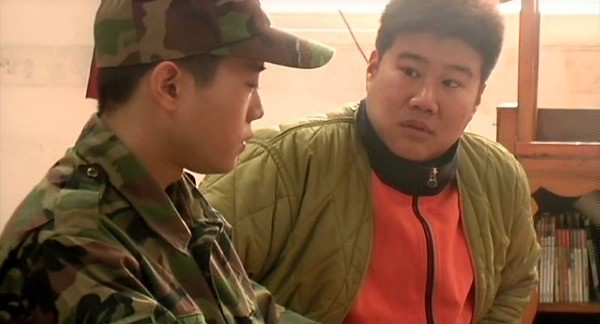Some nights, I wake up from dreams about my time in the army. Most of them aren’t too frightening and I shrug them away to get on with my life, but sometimes I just can’t help but be affected by the bitterness they leave. My memory of my military service is far from happy; though not completely devoid of positive moments, in my opinion, it’s an experience I could have done without. Yet, the consecration of the army — the way it is idealized and seen as unequivocally honorable — is something that is causing polarization within Korea.

Most men born in South Korea are required to enlist in some form of military service. Not many people like this mandatory package that comes with your gender. It was the same for me — I was always scoffing, under my breath of course, at that one line in the soldier’s creed we recite every day: “We protect liberal democracy and will become the pillar of reunification.”
What made those two years so miserable was not really the quality of life in the army. The hard training was bearable. So was the extreme heat and the biting cold of the Gangwon province. Honestly, some parts weren’t too bad: The playful jokes, the sense of belonging, and the tranquility of the countryside. All of these are memories that I can reminisce upon with the lightheartedness of a discharged soldier. What I couldn’t stand was the entrapment in the experience and the cycle that never seemed to come to an end, the people I encountered that couldn’t be reasoned with, and the outdated logic that predominates military society.
“Nobody wants to enroll in the army, but you ought to nonetheless.” This was what my superior liked to say to us whenever there was trouble in the barracks. This elongated version of the phrase “suck it up” obviously did not boost our morale. The reminder of the fact that two years of my life was forcefully stripped away from me exacerbated my loathing of the situation rather than alleviating it. However, I have to admit, with reluctance, that the statement is an accurate description of enlisting in the army. It’s a forced sacrifice warranted only by the same sacrifices made by previous generations, which were equally — if not more — painful.
The problem is the consecration of the military service. While it is honorable to serve one’s country to ensure its safety, some view the criticism of mandatory enlistment to be sacrilegious. The fact that most men have enlisted without fail has somehow made it a holy symbol of equality within the Korean society. The robbery of freedom from Korea’s male youth has become not just the norm, but a mandatory trial by fire in Korean culture that determines an individual's worth — a tradition. Individuals who do not enlist, even if their reasons are legitimate, are frowned upon and their motives questioned.
Due to this peer pressure from society, even those with a negative outlook on the system are reluctant to stand against what has become a social standard. As a result, only in 2018 did the Constitutional Court of Korea reverse a law used to punish conscientious objection of military service; before, conscientious objection was punishable by prison time.
The core cause of all problems in the army is the fact that soldiers are drafted into the system prebuilt on outdated beliefs and logic. Despite the attempts to mitigate the situation, the forced mixture of clashing personalities and people incompatible to the army has been the prime recipe for conflict. The mediation of certain problems does not warrant the branding of critics as “snowflakes” or “pye-geub” (a derogatory military term for people and things that are of such low quality as to be worthless). As long as there remains an immense population of drafted soldiers whose freedoms are restricted, there exists a seed for disaster. The deification of the military service must be rejected in order to unify the public effort in finding an alternative to conscription.

